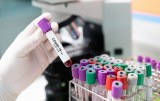
SARS-CoV-2 - Serological tests for research and development
The newly identified coronavirus, SARS-CoV-2 (2019-nCoV), led to pneumonia (COVID-19). SARS-CoV-2 belongs to the genus of betacoronaviruses, which also includes the SARS CoV (2003) and the MERS CoV (2012). Like all other coronaviruses, the SARS-CoV-2 genome (2019-nCoV) codes for the spike protein, envelope protein, membrane protein and nucleocapsid protein.
Several methods are available to detect the presence of CoV-2-SARS in samples. The 3 main ones are RT-qPCR, which consists of detecting the presence of viral RNA using probes and primers specific to certain viral genes, immunochromatography (rapid test), which consists of detecting the presence of antibodies directed against SARS-CoV-2 antigens, and finally, the ELISA technique.
But new methods are beginning to emerge, such as RT-LAMP, which allows the virus genome to be amplified rapidly and its presence or absence to be visualised by specific staining. This technique takes less than 1 hour and requires little equipment.


